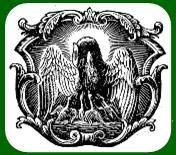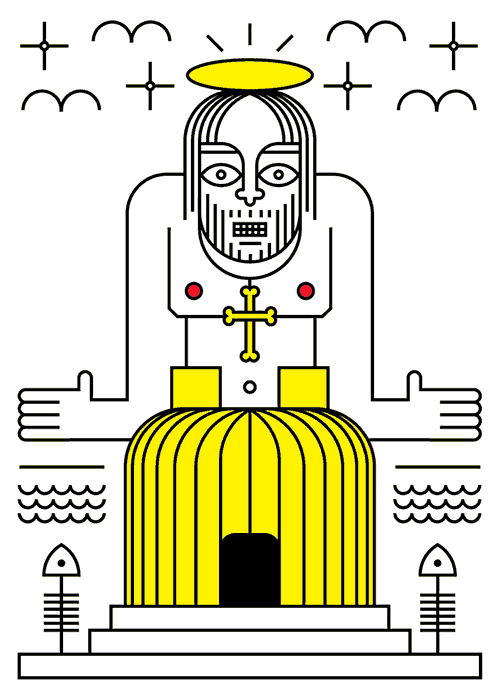
|
Mother Pelican
A Journal of Solidarity and Sustainability
Vol. 18, No. 7, July 2022
Luis T. Gutiérrez, Editor
|
|
|
|

|
|
|
From Homo economicus to Homo ecologicus ~
Sequel 7 ~ Personal Dynamics
Luis T. Gutiérrez
July 2022
|
This article on personal dynamics is Sequel 7 to From Homo economicus to Homo ecologicus ~ Cultural Evolution During the 21st Century. It follows
Sequel 1 on conscious evolution,
Sequel 2 on human supremacy,
Sequel 3 on human personhood,
Sequel 4 on human relations,
Sequel 5 on human agency, and
Sequel 6 on historical dynamics.
The life of each and every human being matters. Historical dynamics emerge, over time, from millions (now billions) of personal dynamics and the evolution of cultures. Personal dynamics are the life histories of each human being from birth to death. There is symbiosis between personal time histories and the prevailing culture of the times, for "no one grows alone" (Carl Jung). There is also symbiosis between personal time histories and the human habitat, because human beings are embodied personal subjects (Genesis 2:7) who need food, water, and other natural resources in order to survive, and even more so in order to thrive.
Integral Human Development
Integral human development entails development of each person and of the whole person. In terms of Maslow's pyramid, integral human development is not just about meeting basic needs but also psychological and self-fulfillment needs. But as the patriarchal era passes away, the ecological crisis looms. We better be on the threshold of a renewal of humanity: Homo sapiens must outgrow Homo economicus and become Homo ecologicus.
Since the man-nature relation is a mirror of the man-woman relation, it is hard to imagine that such renewal can come to pass without a post-patriarchal balancing of gender relations. It is time to recognize how gender shapes individual human development, human relations, and the entire human civilization embedded in the biosphere:
"The multifaceted notion of gender pervades every aspect of life and of living. Gender differences form the basis for family life, patterns of socialization, distribution of tasks, spheres of responsibility, and occupational predilections. An understanding of the nature of gender is central to many disciplines—social sciences such as anthropology, sociology, women’s studies, criminology, linguistics, and biology, to name a few. The way gender is articulated shapes the world of individuals, and of the societies they live in." Alexandra Y. Aikhenvald,
How Gender Shapes the World
|
It follows that human development that is not engendered is endangered. A renewal of gender relations is essential for both social justice and ecological justice. A renewal of man-woman relations is essential for integral human development. It is also essential for attaining an integral ecology, as argued in the companion article. This renewal of gender relations must be based on an integral anthropology that transcends the patriarchal culture of rigid gender stereotypes, such as male headship, and leads to a culture of egalitarian gender relations.
Obstacles to Integral Human Development
Since time immemorial, human agency has been constrained by the patriarchal mindset of domination -- of women by men, some humans by more powerful humans, and non-human nature by most humans. Gender shapes human agency, because humans are embodied animals, male and female. There is one human nature, embodied as male and female as required for reproduction. But it is not only a matter of biophysical reproduction. Bodily sexuality predisposes human beings to become personal subjects in mutuality complementary ways that often become mutually harmful. Gender shapes but also distorts human agency more than any other factor, because gender relations were corrupted by "original sin" (Genesis 3:16), with nefarious social and ecological consequences that are now threatening the survival of human civilization:
"H. sapiens is a self-described intelligent species, yet seems committed to destroying its own habitat. Human-induced climate change, driven by carbon dioxide and other GHG emissions, is one of several well-known threats to global civilization. Nevertheless, 34 climate conferences and half a dozen major international agreements in the past 50 years have failed to produce even a ripple in the curve of exponentially increasing atmospheric CO2 concentrations. Climate change is accelerating. This presentation: 1) examines some of the evolutionary, behavioural and cognitive impediments to effective corrective action by governments and international agencies and; 2) advances some ideological, political and organizational changes that must be implemented at all levels of society to avoid global climate catastrophe." William E. Rees, The Enigma of Climate Inaction – On the Human Nature of Policy Failure
|
Policy failures in the management of natural resources are further exacerbated by religious patriarchy:

Genesis 1:28 ~ Courtesy of Vincenzo Fagnani.
Click on the image to enlarge.
Historically, Genesis 1:28 has been distorted into a divine mandate to exploit the entire community of creation for the convenience of humans. Thankfully, this false belief has been corrected by Pope Francis in his encyclical Laudato Si':
"66. The creation accounts in the book of Genesis contain, in their own symbolic and narrative language, profound teachings about human existence and its historical reality. They suggest that human life is grounded in three fundamental and closely intertwined relationships: with God, with our neighbour and with the earth itself. According to the Bible, these three vital relationships have been broken, both outwardly and within us. This rupture is sin. The harmony between the Creator, humanity and creation as a whole was disrupted by our presuming to take the place of God and refusing to acknowledge our creaturely limitations. This in turn distorted our mandate to “have dominion” over the earth (cf. Gen 1:28), to “till it and keep it” (Gen 2:15). As a result, the originally harmonious relationship between human beings and nature became conflictual (cf. Gen 3:17-19). It is significant that the harmony which Saint Francis of Assisi experienced with all creatures was seen as a healing of that rupture. Saint Bonaventure held that, through universal reconciliation with every creature, Saint Francis in some way returned to the state of original innocence. This is a far cry from our situation today, where sin is manifest in all its destructive power in wars, the various forms of violence and abuse, the abandonment of the most vulnerable, and attacks on nature."
|
Lamentably, he skips Genesis 3:16, which establishes the intrinsic connection between the patriarchal curse and the ensuing social and ecological consequences, since gender shapes all human relations.
Renewal of Humanity, Male and Female
A renewal of humanity is required in both the secular and religious dimensions. In the secular dimension:
"A genuinely fundamental and hopeful improvement in “systems” cannot happen without a significant shift in human consciousness, and …it cannot be accomplished through a simple organizational trick. This is something no revolutionary or reformer can bring about; it can be only the natural expression of a more general state of mind, the state of mind in which man can see beyond the tip of his own nose and prove capable of taking on–under the aspect of eternity–responsibility even for the things that don’t immediately concern him, and relinquish something of his private interest in favour of the interest of the community, the general interest. Without such a mentality, even the most carefully considered project aimed at altering systems are for naught." Vaclav Havel, Czech statesman, playwright and dissident, who served as the first president of the Czech Republic. Source: Canadian Association for the Club of Rome
|
In the religious dimension:
"114. All of this shows the urgent need for us to move forward in a bold cultural revolution. Science and technology are not neutral; from the beginning to the end of a process, various intentions and possibilities are in play and can take on distinct shapes. Nobody is suggesting a return to the Stone Age, but we do need to slow down and look at reality in a different way, to appropriate the positive and sustainable progress which has been made, but also to recover the values and the great goals swept away by our unrestrained delusions of grandeur.
"118. This situation has led to a constant schizophrenia, wherein a technocracy which sees no intrinsic value in lesser beings coexists with the other extreme, which sees no special value in human beings. But one cannot prescind from humanity. There can be no renewal of our relationship with nature without a renewal of humanity itself. There can be no ecology without an adequate anthropology. When the human person is considered as simply one being among others, the product of chance or physical determinism, then “our overall sense of responsibility wanes”.[96] A misguided anthropocentrism need not necessarily yield to “biocentrism”, for that would entail adding yet another imbalance, failing to solve present problems and adding new ones. Human beings cannot be expected to feel responsibility for the world unless, at the same time, their unique capacities of knowledge, will, freedom and responsibility are recognized and valued." Pope Francis, Laudato Si' 114, 118
In terms of the Christian faith, the patriarchal mindset whereby only human males have a natural resemblance to Jesus Christ is now being reconsidered, for many reasons that are intrinsic to a theology of the body consistent with integral human nature, male and female:
1. Jesus Christ is the Redeemer, God made flesh, not a patriarch.
2. God the Father is a person, but not a male.
3. God the Son is a person, but was not a male before the incarnation.
4. God the Holy Spirit is a person, but not a male.
5. The Trinity is a communion of persons, not a patriarchate.
6. The "Son of Man" is God made flesh, not a patriarch.
7. All men and women are fully consubstantial in one and the same human nature.
8. Bodiliness and sexuality are not simply identical.
9. Being a body-soul is more fundamental for human nature than sexuality.
10. The body is a sacrament of the entire person, but is not the entire person.
11. The priest acts in the person of Christ, not in the masculinity of Christ.
12. All men and women are ontologically homogeneous in their whole being.
13. All men and women are of the same flesh in their somatic structure.
14. The complementarity of man and woman is enabled by their consubstantiality.
15. All men and women are fully consubstantial with Jesus Christ as to his humanity.
16. For the redemption, the masculinity of Jesus is as incidental as the color of his eyes.
17. Jesus Christ is the Bread of Life, not the male of life.
18. The substance of the Eucharist is BODY, not XX or XY chromosomes.
19. The substance of the Eucharist is FLESH, not testosterone.
20. The Church is "one, holy, catholic, and apostolic," but not necessarily patriarchal.
21. Patriarchy is a disordered attachment to the supremacy of masculinity.
22. The Church is a communion of persons, not a patriarchate.
23. The Church is the body of Christ, not a woman with a male head.
24. The Virgin Mary is the "type" of the Church, not a woman with a male head.
25. The Virgin Mary precedes the sacramental economy as Mother of the Eucharist.
26. The Marian dimension of the Church precedes the apostolic dimension.
27. Apostolic succession is contingent on redeemed flesh, not on masculinity.
28. The nuptial mystery of Christ and the Church is not a patriarchal marriage.
29. Canon 1024 is an artificial contraceptive and abortifacient of female priestly vocations.
30. Catechism 1577 reduces the priesthood of the New Law to priesthood of the Old Law.
31. Catechism 1598 declares that ordaining only males is a choice, not a dogma.
32. The exclusively male priesthood makes invisible the "feminine genius" in Christ.
33. The Christian/Catholic/Orthodox faith is not intrinsically (dogmatically) patriarchal.
34. The conflation of patriarchal gender ideology and Christian doctrines is a disgrace.
35. Institutionalized ecclesiastical patriarchy is an abuse against Christ and the Church.
36. It is time to discard the patriarchal scaffolding that obscures the Catholic faith.
37. Male headship is an ancient but entirely artificial cultural custom, not natural law.
38. After the resurrection, nothing requires that apostolic succession be exclusively male.
39. The first "transubstantiation" in history happened in the Blessed Virgin Mary's body.
40. Transubstantiation can happen via women ordained to act in persona Christi.
|
Consider point 17 in the list above. Integral human development is fully attained when a man or a woman become "bread" for others. Jesus Christ is the model of a fully integrated human. In other words, "man, who is the only creature on earth which God willed for itself, cannot fully find himself except through a sincere gift of himself" (Gaudium Spes, 24). See also Matthew 23:37, Luke 13:34, and the significant allegory about the pelican piercing her heart to feed her young in The Physiologus.

Corpus Christi ~ The body of Christ is the Bread of Life,
not the male of life. Click on the image to enlarge.
Radical Renewal of Humanity for an Integral Ecology
Is it possible to attain an integral ecology without a radical renewal of humanity and human civilization? In Fratelli Tutti, Pope Francis wrote:
"17. To care for the world in which we live means to care for ourselves. Yet we need to think of ourselves more and more as a single family dwelling in a common home. Such care does not interest those economic powers that demand quick profits. Often the voices raised in defence of the environment are silenced or ridiculed, using apparently reasonable arguments that are merely a screen for special interests. In this shallow, short-sighted culture that we have created, bereft of a shared vision, “it is foreseeable that, once certain resources have been depleted, the scene will be set for new wars, albeit under the guise of noble claims”."
"21. Some economic rules have proved effective for growth, but not for integral human development. Wealth has increased, but together with inequality, with the result that “new forms of poverty are emerging”. The claim that the modern world has reduced poverty is made by measuring poverty with criteria from the past that do not correspond to present-day realities. In other times, for example, lack of access to electric energy was not considered a sign of poverty, nor was it a source of hardship. Poverty must always be understood and gauged in the context of the actual opportunities available in each concrete historical period."
"122. Development must not aim at the amassing of wealth by a few, but must ensure “human rights – personal and social, economic and political, including the rights of nations and of peoples”. The right of some to free enterprise or market freedom cannot supersede the rights of peoples and the dignity of the poor, or, for that matter, respect for the natural environment, for “if we make something our own, it is only to administer it for the good of all”."
But is such a radical renewal possible as long as patriarchy (including religious patriarchy) remains normative in human relations? Next month, this page will focus on gender dynamics as a crucial dimension of human agency, and the unavoidable social and ecological consequences of cultures of secular and religious domination. A cultural transition from patriarchy to solidarity (between humans, and between humans and nature) may not be sufficient but it is absolutely necessary for a sustainable human civilization.
Meanwhile, for integral human development, and for an integral ecology, Pope Francis' encyclicals Laudato Si' on sustainability, and Fratelli Tutti on solidarity, are good guidance for human agency by all men and women of good will. There is an intrinsic connection between the two encyclicals, because ecological sustainability is not attainable without human solidarity. The Laudato Si' Action Platform and the Laudato Si' Movement are recommended as a most effective means, especially for 1.2 billion Catholics, to play a part in conscious cultural evolution for the renewal of humanity and human civilization:

Study the encyclicals Laudato Si' and Fratelli Tutti.
Explore the Laudato Si' official website.
Another good resource is the Laudato Si' Research Institute.
Click the image for more information about the Laudato Si' Action Platform.
Consider becoming active in the Laudato Si' Movement.
Goals of the Laudato Si' Action Platform:
(1) Hearing the Cry of the Earth
(2) Hearing the Cry of the Poor
(3) Ecological Economics
(4) Adoption of Sustainable Lifestyles
(5) Ecological Education
(6) Ecological Spirituality
(7) Community Resilience and Empowerment
|Back to Title|
LINK TO THE CURRENT ISSUE
LINK TO THE HOME PAGE
|
|
|
|
"A mind at peace does not engender wars."
Sophocles (497-406 BCE)
|
|
Page 24
|
|
FREE SUBSCRIPTION
|
![[groups_small]](groups_small.gif)
|
Subscribe to the
Mother Pelican Journal
via the Solidarity-Sustainability Group
Enter your email address:
|
|
|
|